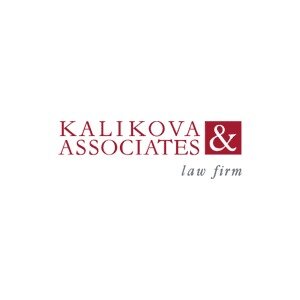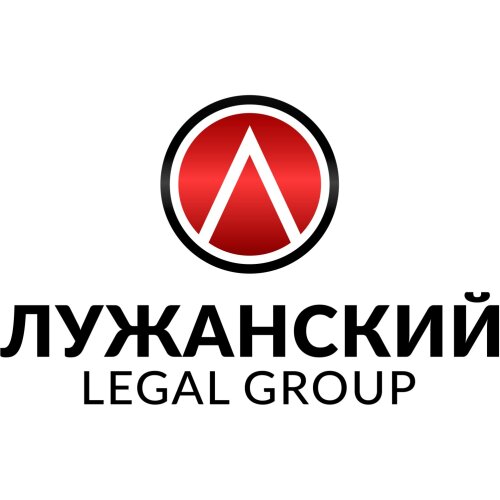Best Sanctions & Export Controls Lawyers in Bishkek
Share your needs with us, get contacted by law firms.
Free. Takes 2 min.
List of the best lawyers in Bishkek, Kyrgyzstan
About Sanctions & Export Controls Law in Bishkek, Kyrgyzstan
Sanctions and export controls are areas of law that regulate the movement of goods, services, technology, and finances across international borders. In Bishkek, Kyrgyzstan, these laws are vital due to the country's strategic location and its involvement in international trade. Kyrgyzstan adheres to its national legal framework, aligns with certain international obligations, and must respond to changing global dynamics, such as United Nations-imposed sanctions or regional requirements. Businesses, investors, and individuals operating in Bishkek must understand these controls to avoid legal risks and ensure compliance with both domestic and international standards.
Why You May Need a Lawyer
A lawyer specializing in sanctions and export controls can help you navigate the complex and ever-changing landscape of these regulations in Bishkek. Common situations that require legal assistance include:
- Conducting cross-border trade that may involve restricted countries or goods
- Exporting or importing dual-use technologies
- Due diligence in international partnerships or investments
- Responding to inquiries or investigations from regulatory authorities
- Applying for export licenses or exemptions
- Ensuring corporate compliance with Kyrgyz and international sanctions regimes
- Risk assessment and mitigation for international business expansion
- Representation in court or administrative hearings concerning alleged violations
An experienced lawyer can help individuals and businesses assess risk, avoid costly penalties, and maintain their reputation.
Local Laws Overview
Kyrgyzstan regulates sanctions and export controls through several key laws, presidential decrees, and resolutions by the Cabinet of Ministers. While there is no single comprehensive sanctions law, the legal landscape includes:
- National Security Law: This forms the basis for measures that restrict trade or financial transactions with certain countries, entities, or individuals.
- Customs Code of the Kyrgyz Republic: Governs clearance, documentation, and licensing for goods entering or leaving the country. Certain items, including arms or dual-use technologies, are subject to enhanced controls.
- International Obligations: Kyrgyzstan, as a United Nations member and a Eurasian Economic Union (EAEU) member, implements UN Security Council sanctions and abides by EAEU-wide export control rules.
- Presidential and Government Decrees: Occasionally, specific decrees impose embargoes or restrictions on trade with particular countries in response to political or security concerns.
- Ministry of Economy and Ministry of Foreign Affairs: Handle licensing, regulatory updates, and enforcement.
Violating these laws can result in fines, loss of business licenses, asset freezes, criminal liability, and reputational damage.
Frequently Asked Questions
What is the purpose of sanctions and export controls in Kyrgyzstan?
They are designed to protect national security, fulfill international obligations, prevent the proliferation of weapons and restricted technologies, and align Kyrgyzstan with global efforts against terrorism and illegal trade.
Who enforces sanctions and export controls in Bishkek?
Enforcement is managed by government agencies such as the State Customs Service, Ministry of Economy, and Ministry of Foreign Affairs. Law enforcement bodies may also be involved in investigations.
What items are typically subject to export controls?
Export controls usually extend to arms and military goods, dual-use technologies (items with both civilian and military applications), strategic resources, and any goods or technologies identified by government decrees.
Do sanctions apply only to businesses?
No, sanctions can also apply to individuals, including those sending money, providing technical assistance, or engaging in trade with entities or countries under restrictions.
Can Kyrgyzstan impose its own sanctions separate from the UN or EAEU?
Yes, the government can establish autonomous sanctions or trade restrictions in response to national interests or foreign policy objectives.
What are the penalties for violating sanctions or export controls?
Penalties may include administrative fines, criminal prosecution, confiscation of goods, loss of export privileges, and potential blacklisting from government contracts.
Do I need a license to export restricted goods?
Yes, exporting goods subject to controls requires a government-issued license. The application process is overseen by the Ministry of Economy and relevant regulatory bodies.
How can I find out if a country or company is subject to Kyrgyz sanctions?
Official lists and updates are published by the government, and can be obtained from the Ministry of Foreign Affairs, the State Customs Service, or through legal professionals.
Are there exemptions for humanitarian trade or aid?
Some exemptions exist for humanitarian activities, but these must be clearly documented and authorized by the relevant government entities.
What should I do if I realize I may have violated export controls?
Contact a qualified lawyer immediately to assess your situation, liaise with authorities if necessary, and develop a compliance or defense strategy.
Additional Resources
If you need further guidance or information, the following resources can be helpful:
- State Customs Service of the Kyrgyz Republic
- Ministry of Economy and Commerce
- Ministry of Foreign Affairs
- Court registry and legal information portals
- Chambers of Commerce and industry associations
- Local branches of international organizations such as the United Nations Office
- Legal aid clinics or services in Bishkek specializing in business and international law
Next Steps
If you require legal assistance with sanctions or export controls issues in Bishkek, Kyrgyzstan, consider taking the following steps:
- Gather all relevant documentation, including contracts, correspondence, and transaction records
- Make a list of your specific questions or concerns
- Contact a lawyer or law firm experienced in international trade and sanctions law
- Schedule a consultation to discuss your situation and get clear advice on compliance or defense
- Remain proactive in monitoring regulatory updates and maintaining transparent business practices to minimize future risks
By seeking timely legal advice, you can protect your interests and ensure your activities comply with all applicable laws in Bishkek, Kyrgyzstan.
Lawzana helps you find the best lawyers and law firms in Bishkek through a curated and pre-screened list of qualified legal professionals. Our platform offers rankings and detailed profiles of attorneys and law firms, allowing you to compare based on practice areas, including Sanctions & Export Controls, experience, and client feedback.
Each profile includes a description of the firm's areas of practice, client reviews, team members and partners, year of establishment, spoken languages, office locations, contact information, social media presence, and any published articles or resources. Most firms on our platform speak English and are experienced in both local and international legal matters.
Get a quote from top-rated law firms in Bishkek, Kyrgyzstan — quickly, securely, and without unnecessary hassle.
Disclaimer:
The information provided on this page is for general informational purposes only and does not constitute legal advice. While we strive to ensure the accuracy and relevance of the content, legal information may change over time, and interpretations of the law can vary. You should always consult with a qualified legal professional for advice specific to your situation.
We disclaim all liability for actions taken or not taken based on the content of this page. If you believe any information is incorrect or outdated, please contact us, and we will review and update it where appropriate.











